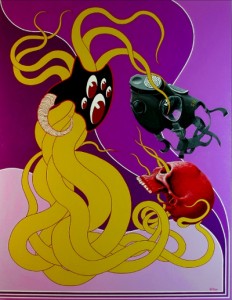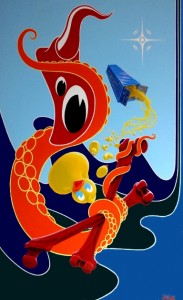The Enlightenment was a profound period in Western culture that lauded reason and civility, and championed the growth of knowledge through scientific exploration. The notion of progress was not yet corrupted by cynicism – reason and civility not yet seen as weakness. Scientific exploration, and the pursuit of truth it entailed, has been appropriated by an exclusively for-profit economic system. This system has come to dominate all other systems and ways of life. Any concept of self, community, progress or prosperity is predetermined by it. It is a system in which we are trapped, and so any effort to survive within it constitutes complicity.
The philosophical and methodological instruments of the Enlightenment that at one time were devised with at least the pretense of serving a commonwealth now overtly serve the interests of commerce – after all, there is no profit or privilege in the equal distribution of resources. Additionally, great leaps in innovation cause repercussions both unforeseen and intentionally hidden. My ability to live with a sense of purpose and to work toward a greater good are inherently compromised by a world that is engineered beyond my control.
The Fall from Enlightenment series represents many things. Using 20th Century symbolism and allegory, it’s a commentary on the consequences of a postmodern life lived within the instability-by-design of a global free market, or the effects of technological innovation, or the social impact of celebrity, etc. The figures in each piece are not meant to represent demons or vice, but rather social, political, and economic forces that overwhelm us. Their representation encourages a false sense of insight, as if we can actually see otherwise invisible forces at work. But these forces are still masked and so remain illusory. Each piece in the series is a snapshot of distorted space – the briefest moment of contemplation for an act committed and of passive curiosity as to its consequences.
As criticisms of Enlightenment goals have demonstrated, each reflection ultimately points to the fact that the search for knowledge can be perverted into a corrosive and destructive process. The ontological drive to measure, sample, and classify as extensions to direct observation has created a body of knowledge built on extractions of reality – tantamount to understanding through annihilation.




Recent Comments